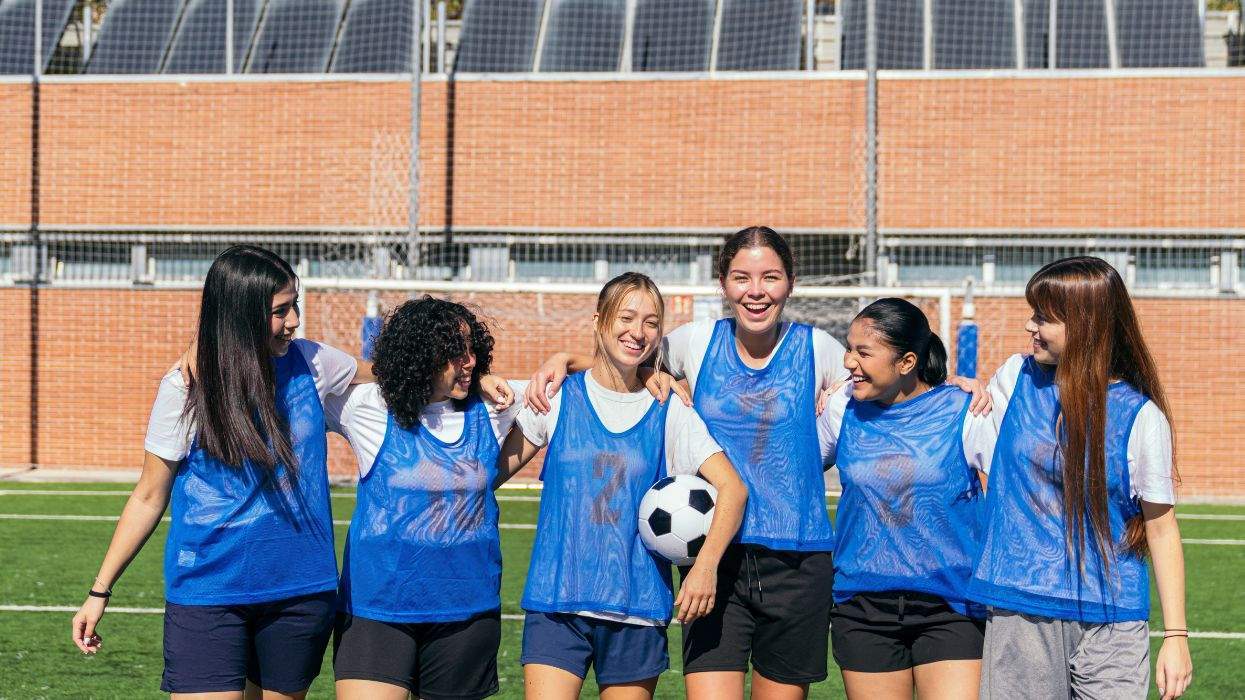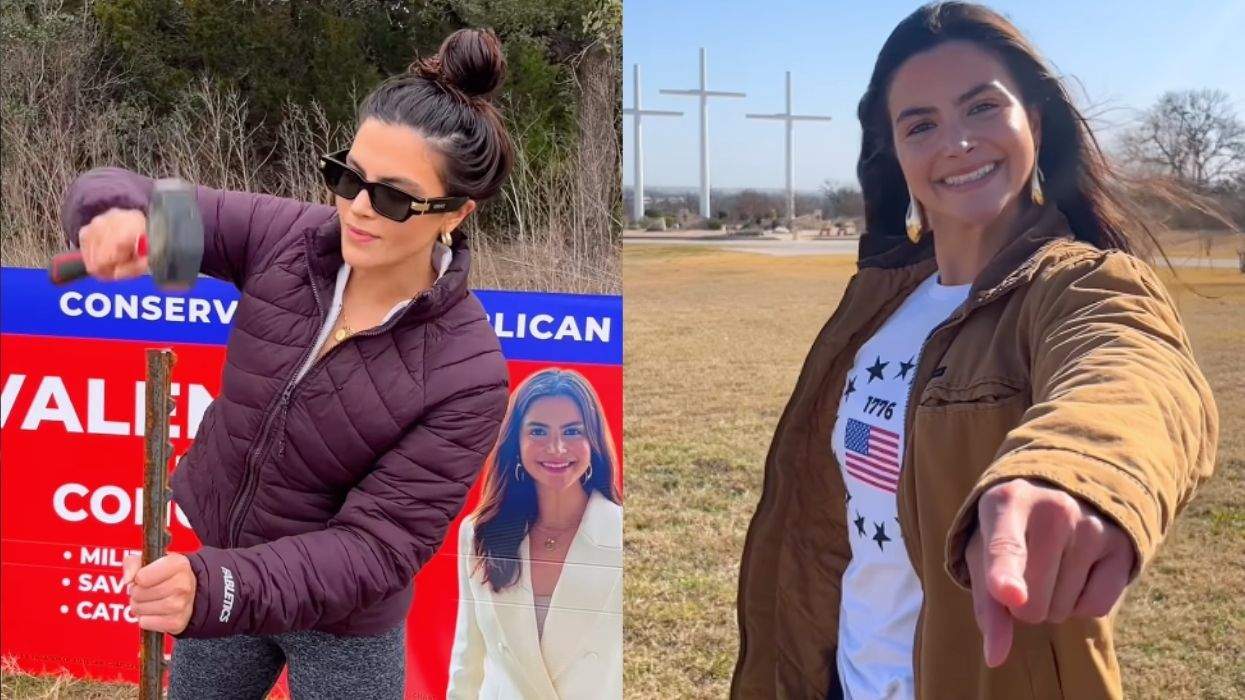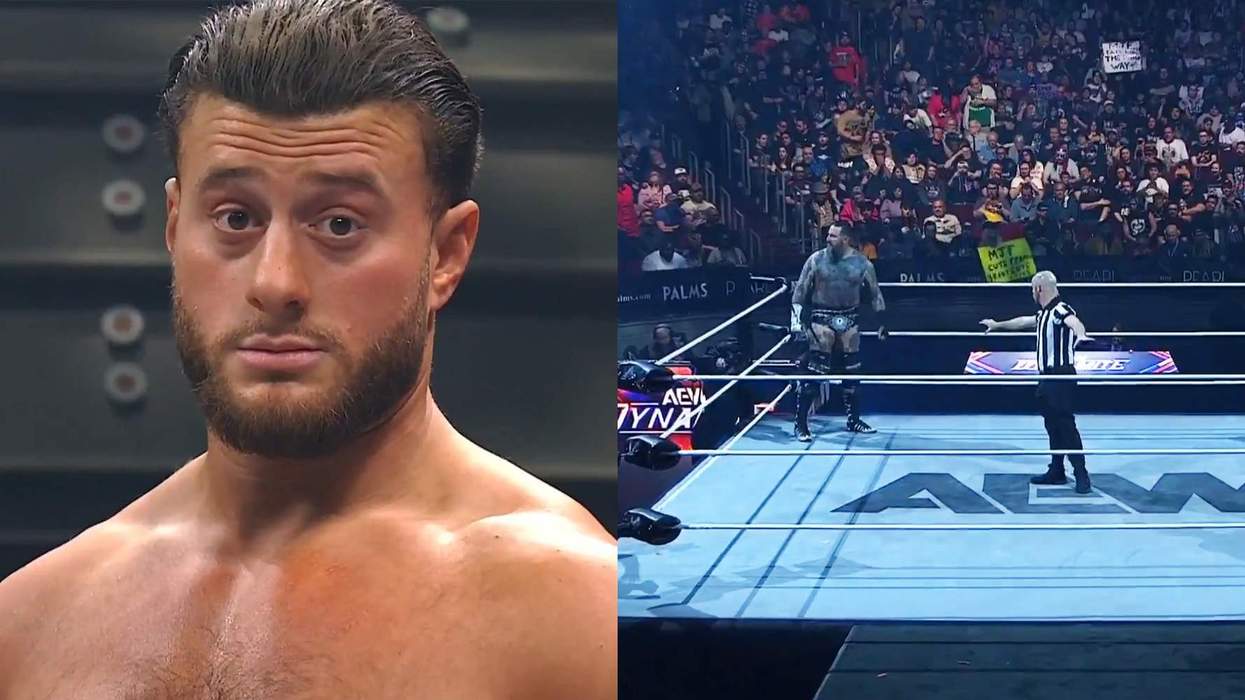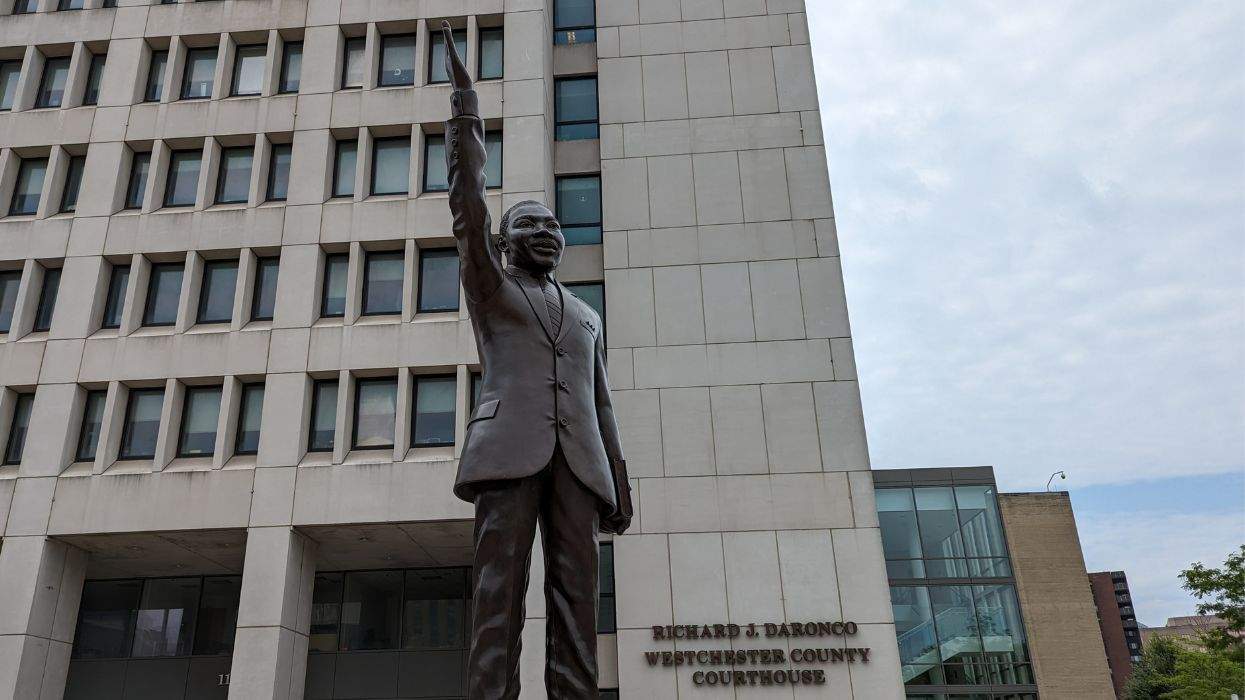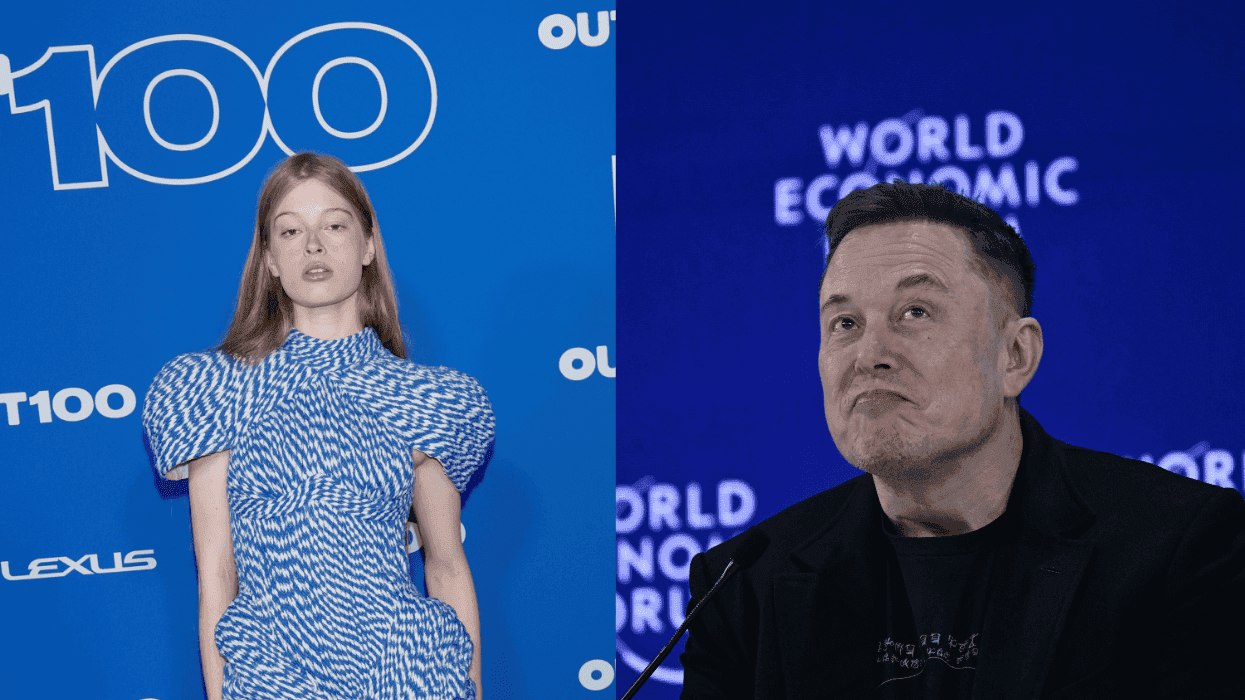It would be impossible to envision a film about the life of Harvey Milk that didn't include Cleve Jones. A Milk protege and a key worker in the politician's successful 1977 campaign for the San Francisco board of supervisors, Jones conceived the AIDS Memorial Quilt at a candlelight memorial for Harvey Milk in 1985. More than two decades later, it has become the largest community arts project in the world.
In the upcoming film Milk, directed by Gus Van Sant and starring Sean Penn, Cleve Jones is brought to life by Emile Hirsch as a young man full of hope with big eyeglasses and even bigger hair. In the following conversation, Jones and Hirsch -- who has just finished filming Ang Lee's Taking Woodstock, about gay festival visionary Elliot Tiber -- discuss Milk and the importance of two men who gave their lives to gay rights.
Jones: Sean was your director on Into the Wild. What was it like working with him on this film as a costar?Hirsch: It was great. On Into the Wild, I got so used to interacting with him in a really intimate actor-director way. For the most part I forgot about him in terms of being an actor. So to all of a sudden see him in the acting world is really surprising. We spent two years together and he didn't do any acting, and all of a sudden he's doing it amazingly.
For all of us who knew Harvey, watching Sean's transformation into him was really remarkable. I was also amazed by your transformation. How did you prepare to play me?I was sent a DVD; I think it was a CBS report. There was some footage in there of you, and I thought, Oh, my gosh, wow. Look at his hair and his glasses. At the end of that special you said, "And we will never be stopped." It was so passionate and amazing. Then I saw the documentary [The Times of Harvey Milk], and I was like, I'm in. I went up to San Francisco a couple months before filming started and we just hung out for about a month. It was great how you'd drive me around to Haight-Ashbury and the Castro and all these different neighborhoods and tell me stories and all the history and try to give me a context.
Was it helpful to talk to all of the other old farts who are still around, or did it get in the way?I found it so helpful, but I think, of all the actors on Milk, I was probably the most spoiled because I had you. I don't think any of the actors other than Lucas Grabeel [who plays photographer Daniel Nicoletta, another Milk friend and supporter] had the real-life person they were portraying on set every day to hang out with. Any question I had, you could answer it. I could study the way you moved about. [Laughs]
And then there's the hair. I've seen several references to it on the blogosphere. I think we just need to go on the record that that's your real hair.Yes, no wig there. That's the real deal, right there.
I really enjoyed hanging out with you. I was nervous, though, because I really wanted to like you and the people involved in the film. Do you think that this will be a film that a younger heterosexual audience will see, and do you think it has the potential to make a difference?Absolutely. I think this movie is first and foremost a movie about human rights, civil rights. I think the more specific context within that movie is gay rights. But ultimately Harvey includes everybody. It's not just gay rights he stands for; it's minorities, disabled people, and elderly people. I think that is something that connects with everybody. And I think that's inspiring, particularly to young people. When you see the kind of odds he was up against in his own time -- his courage, his will, and his belief that what he was doing was right kept him going.
Let's talk a little bit about Gus. Was different about working with Gus?Gus is so mellow and so confident. He can just shoot really quiet, not screaming or in your face. So you just go for it. He won't give you a thousand directions, and you're like, Wow. I didn't get any directions, I'm going to see what else I can do and try something creative. There are a couple times where I think I took it a little too far, where I just became ridiculously over-the-top, and he'd rein me in. He wanted all the performances to have buoyancy and life.
I was so happy that this was shot in San Francisco. I really felt the whole city really embraced the entire cast and crew. I remember when my father first visited Castro Street he felt like he'd gone to another country. What was your perception of the LGBT community in San Francisco?I was a little bit hesitant when I was first there. Immediately that dissolved as soon as I started walking around. People are so friendly. It wasn't a big deal; people were comfortable with who they were. It was cool.
I'm sure Advocate readers are curious to know how much if any contact you've had with the gay community before. Were there gay people in your life before this film?Oh, yes. Two of my mother's best friends were this great gay couple, Mark and Robert. We knew them growing up and even lived on their ranch for a month or two. They were always so cool and smart and funny and artistic. Always had these great dinners and were really into art. They were kind of like my uncles. Mark had HIV, and he died when I was about 15. It was really, really sad. But I've known a lot of gay people throughout my life.
I left San Francisco because I couldn't handle all of the memories of my friends and comrades who had passed away. It was a real gift to be able to work on the film because it allowed me to come back and to figuratively as well as literally open all of those old boxes full of photos and memories to share with total strangers. The most poignant part for me was when we re-created the famous candlelight march after Harvey and George [Moscone, San Francisco's mayor] were assassinated. What did it feel like for you on that night?It was trying to connect to the past and embrace everyone's feelings of grief. Harvey came to represent all of these people, gay and straight, everybody. It was a special night. There was something kind of ethereal about all of it.
I spent a lot of time with the art department, design department, the people working on sound and lighting. I got the sense that every single person involved felt grateful to be given the chance to work on a film that had the potential to change the way people thought.The fact is, most movies are kind of dumb. They don't really have a message. If they do, they are just god-awful, and you'd rather read a book about the subject and wish they had never made a movie about it at all. Milk is a very unique thing.

